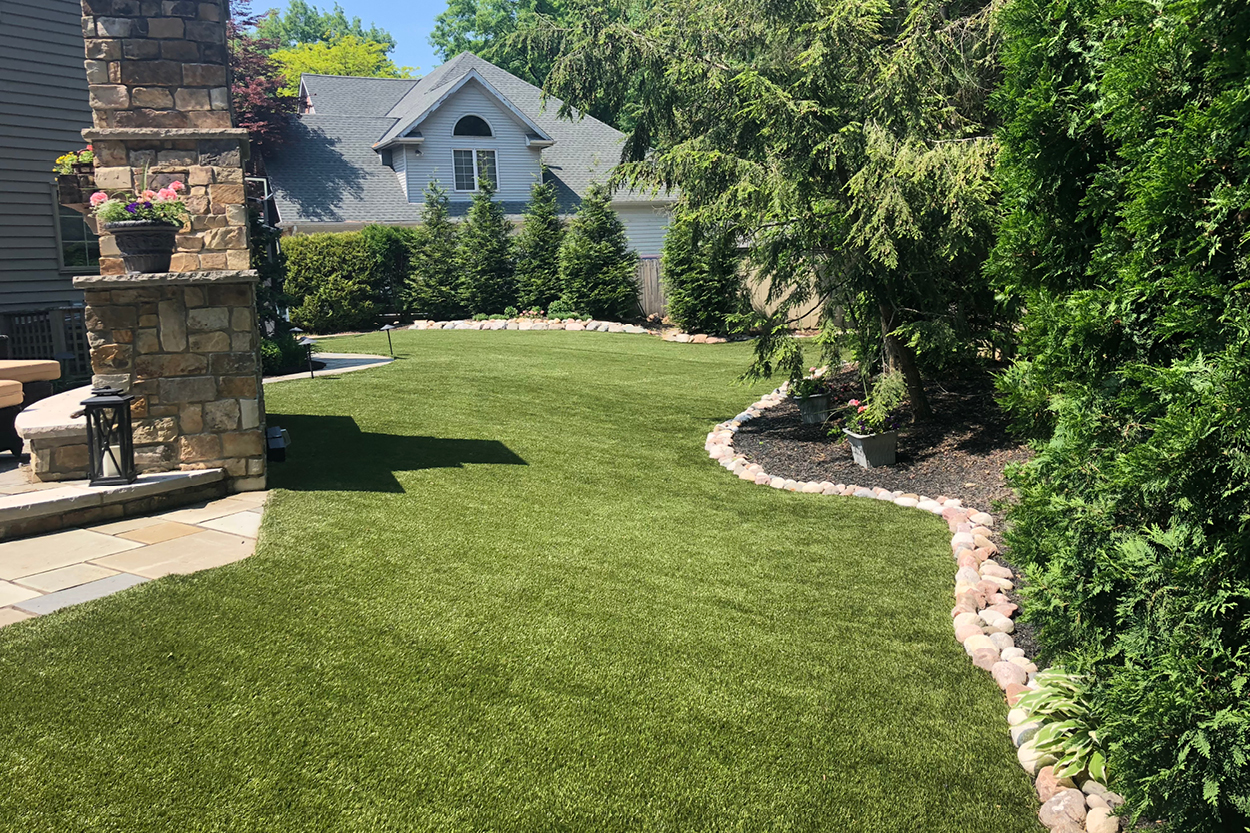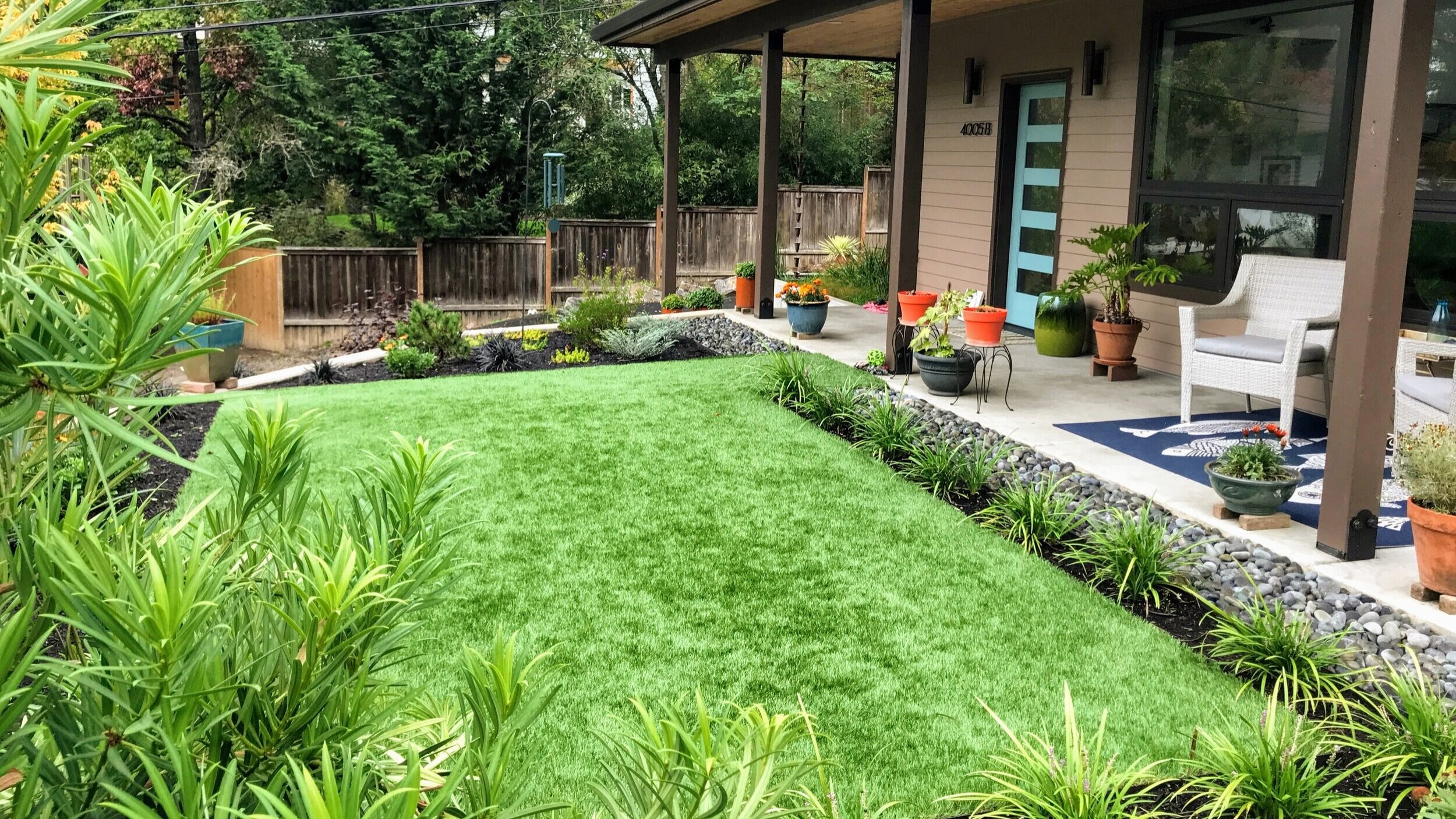Look Into the Environmental Advantages of Opting for Artificial Lawn Solutions
The fostering of fabricated lawn solutions offers an engaging chance to resolve pushing ecological obstacles. By considerably decreasing water usage and lessening the application of hazardous chemicals, these options not only promote lasting landscaping yet also secure neighborhood communities.
Water Preservation Benefits
One of the most considerable advantages of man-made grass is its capability to conserve water. In contrast, fabricated grass does not need watering, considerably lowering the total demand for water resources.
By eliminating the need for routine watering, fabricated grass adds to lasting landscape methods and aids mitigate the ecological impact of excessive water usage. The preservation of water prolongs to the reduction of drainage, which can lead to soil erosion and waterway contamination.
Additionally, the installment of synthetic grass enables districts and homeowners to allot water sources a lot more effectively, concentrating on vital uses such as alcohol consumption water and farming. The shift in the direction of synthetic grass not just promotes liable water use but likewise straightens with broader environmental objectives focused on protecting natural resources.
As neighborhoods progressively focus on sustainability, the water conservation advantages of synthetic turf offer a compelling situation for its adoption in household and commercial landscaping tasks.
Reduced Chemical Use
The transition to synthetic grass substantially decreases the reliance on chemical treatments generally utilized in all-natural turf upkeep. Typical turf monitoring normally entails the application of herbicides, pesticides, and plant foods to promote growth and control bugs. These chemicals can posture risks to human health and wellness, regional wildlife, and the atmosphere, adding to soil and water contamination.
On the other hand, synthetic lawn eliminates the demand for these unsafe materials. When set up, it requires very little maintenance, mostly consisting of routine cleaning and seldom infill replenishment. This decrease in chemical usage not only profits the prompt atmosphere however additionally adds to broader ecological security. By decreasing the release of artificial compounds into the community, fabricated lawn promotes much healthier dirt and water systems.
Furthermore, the absence of chemical drainage connected with synthetic grass installments helps shield local waterways from contamination, supporting marine life and keeping biodiversity. Artificial turf companies phoenix. As areas increasingly prioritize lasting methods, selecting synthetic turf provides a feasible service that aligns with ecological conservation goals. Through this change, homeowner can enjoy rich environment-friendly rooms without compromising eco-friendly wellness, leading the way for an extra sustainable future
Reduced Carbon Footprint
Moreover, the installation of artificial turf can cause significant water preservation. All-natural grass need considerable quantities of water for irrigation, which not just includes to the carbon impact connected with water removal and therapy however additionally pressures regional water resources. In contrast, synthetic grass needs minimal maintenance, calling for no watering, thus significantly reducing water usage and its linked power prices.
Additionally, the longevity of synthetic grass adds to its reduced carbon influence. With a lifespan of approximately 15 years or more, the requirement for frequent replacements is lessened, causing less waste and lower energy usage in production and dealing with standard grass choices. In general, synthetic grass presents a lasting option for ecologically conscious landscaping.
Habitat Preservation
Habitat conservation is an essential factor to consider in the discussion over landscaping options, specifically when comparing synthetic grass to all-natural lawn. Natural lawn lawns frequently need comprehensive upkeep, including using plant foods, herbicides, and chemicals, which can adversely affect local ecosystems. These chemicals can seep right into the dirt and rivers, damaging native vegetation and fauna and disrupting local habitats.
In comparison, fabricated grass provides a possibility to minimize the ecological impact of landscaping. By choosing for artificial turf, house owners can decrease the disturbance of natural environments related to typical lawn treatment techniques. Synthetic lawn removes the demand for damaging chemicals, therefore securing close-by wild animals and preserving the stability of bordering communities. The installation of artificial turf can lead to the conversion of former turf areas right into even more biodiverse landscapes, such as pollinator yards or indigenous plant areas, which can sustain neighborhood wildlife.
Eventually, the shift to artificial lawn not just saves water and minimizes upkeep initiatives however also cultivates an extra harmonious partnership in between human tasks and the natural surroundings, advertising environment conservation at the same time.
Long-Term Sustainability
Lasting sustainability is a vital consider examining the advantages of fabricated grass over typical turf yards. Among the most considerable benefits of synthetic grass is its toughness; it can last as much as 15-20 years with very little upkeep, whereas natural yard needs frequent reseeding and replacement. This longevity reduces the requirement for consistent resources, such as water, plant foods, and pesticides, which are essential for preserving a healthy and balanced turf lawn.
Additionally, synthetic grass contributes to a reduction in carbon exhausts linked with grass treatment devices. Traditional grass commonly need gas-powered mowers, leaners, and blowers, all of which add to air contamination. Arizona turf. In contrast, synthetic grass gets rid of the need for such tools, More Info promoting a cleaner atmosphere
Moreover, the manufacturing of man-made grass increasingly makes use of recycled products, improving its sustainability profile. As suppliers embrace environmentally friendly practices, the environmental impact of synthetic grass remains to lessen.

Conclusion
The adoption of synthetic lawn services presents significant environmental advantages, consisting of substantial water conservation, decreased reliance on harmful chemicals, and a lower carbon footprint. In addition, synthetic grass aids in preserving all-natural environments by minimizing land disturbance and promoting long-lasting sustainability via making use of durable materials. Collectively, these variables highlight the potential of synthetic grass to contribute positively to environmental health and offer a viable alternative to standard landscape design practices in a significantly resource-conscious globe.
In comparison, fabricated grass does not need watering, substantially decreasing the general demand for water resources. By reducing the release of artificial substances into the community, fabricated grass advertises much healthier soil and water systems.
Additionally, the installment of synthetic turf can result her explanation in considerable water conservation. In contrast, fabricated grass requires very little maintenance, needing no watering, therefore dramatically lowering water usage and its associated power expenses.
